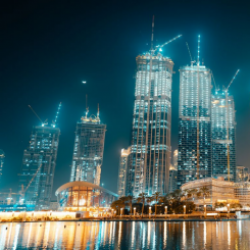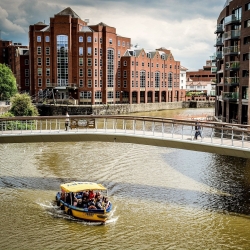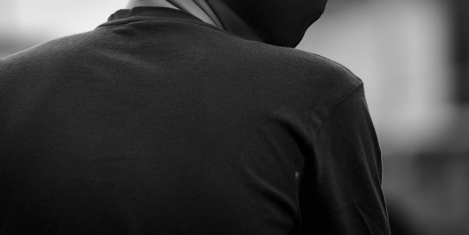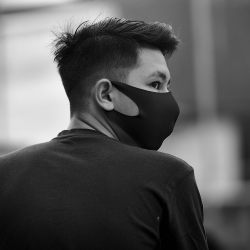To provide the best experiences, we use technologies like cookies to store and/or access device information. Consenting to these technologies will allow us to process data such as browsing behaviour or unique IDs on this site. Not consenting or withdrawing consent, may adversely affect certain features and functions.
The technical storage or access is strictly necessary for the legitimate purpose of enabling the use of a specific service explicitly requested by the subscriber or user, or for the sole purpose of carrying out the transmission of a communication over an electronic communications network.
The technical storage or access is necessary for the legitimate purpose of storing preferences that are not requested by the subscriber or user.
The technical storage or access that is used exclusively for statistical purposes.
The technical storage or access that is used exclusively for anonymous statistical purposes. Without a subpoena, voluntary compliance on the part of your Internet Service Provider, or additional records from a third party, information stored or retrieved for this purpose alone cannot usually be used to identify you.
The technical storage or access is required to create user profiles to send advertising, or to track the user on a website or across several websites for similar marketing purposes.
 Manchester’s office market could see a boost thanks to its 22,850 SME businesses says Cluttons, who have recently launched an office on King Street in the City. Recent research by distribution company Citisprint highlighted that Manchester’s SMEs are also the most confident with 33 percent saying their business is in better shape post-pandemic, and 52 percent expecting to grow in the next 12 months. (more…)
Manchester’s office market could see a boost thanks to its 22,850 SME businesses says Cluttons, who have recently launched an office on King Street in the City. Recent research by distribution company Citisprint highlighted that Manchester’s SMEs are also the most confident with 33 percent saying their business is in better shape post-pandemic, and 52 percent expecting to grow in the next 12 months. (more…)








 According to new research, the majority (58 percent) of built environment professionals believe the sector is already doing enough to tackle its carbon impact, despite the built environment contributing 36 percent of total global energy-related CO2 emissions, and the most recent available data highlighting that CO2 from operational energy use of buildings reached its highest level yet in 2019.
According to new research, the majority (58 percent) of built environment professionals believe the sector is already doing enough to tackle its carbon impact, despite the built environment contributing 36 percent of total global energy-related CO2 emissions, and the most recent available data highlighting that CO2 from operational energy use of buildings reached its highest level yet in 2019. 


 Six of the UK’s key regional economic centres risk not achieving their net zero targets, unless significant action is taken to upgrade and improve their commercial property in the next 10 years, according to new analysis by JLL. The report,
Six of the UK’s key regional economic centres risk not achieving their net zero targets, unless significant action is taken to upgrade and improve their commercial property in the next 10 years, according to new analysis by JLL. The report, 
 Parents who feel shame about childcare responsibilities eating into their work-time are less productive when they are working than those who do not feel ashamed, according to new research by
Parents who feel shame about childcare responsibilities eating into their work-time are less productive when they are working than those who do not feel ashamed, according to new research by 
 Holbein Gardens, located at 7 Holbein Place in the heart of London’s Belgravia, will lead the way for future schemes on the road to achieving net zero carbon. Independent multidisciplinary engineering consultancy
Holbein Gardens, located at 7 Holbein Place in the heart of London’s Belgravia, will lead the way for future schemes on the road to achieving net zero carbon. Independent multidisciplinary engineering consultancy 
 According to new global research from
According to new global research from 
 Throughout the pandemic, we have had to constantly adapt to new models of work and a new working culture. And what makes this process even more challenging is that we’re having to work against a backdrop of uncertainty at every turn. Business leaders that are emerging from the pandemic successfully have been clear on priorities throughout and know how to balance them. This is certainly easier said than done but is integral to leadership as we enter the next chapter of workplace transformation.
Throughout the pandemic, we have had to constantly adapt to new models of work and a new working culture. And what makes this process even more challenging is that we’re having to work against a backdrop of uncertainty at every turn. Business leaders that are emerging from the pandemic successfully have been clear on priorities throughout and know how to balance them. This is certainly easier said than done but is integral to leadership as we enter the next chapter of workplace transformation. 
 Research from
Research from 
 Hiding the bottom half of the face with a mask could have a detrimental effect on our ability to socially interact and share other people’s emotions, new research suggests. A
Hiding the bottom half of the face with a mask could have a detrimental effect on our ability to socially interact and share other people’s emotions, new research suggests. A 







November 11, 2021
Hybrid working is both a challenge and opportunity for comms firms
by Andrew Walker • Comment, Flexible working, Technology